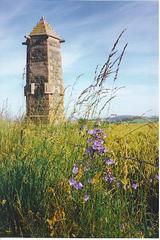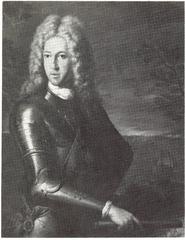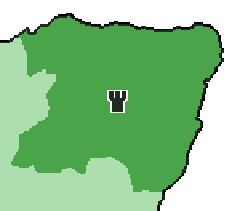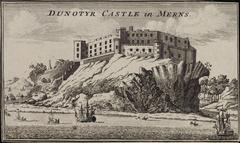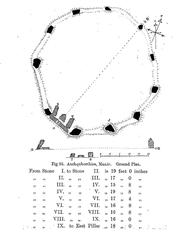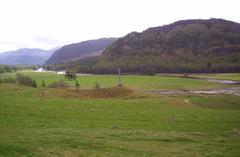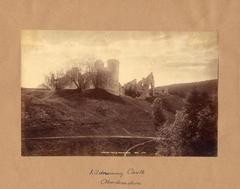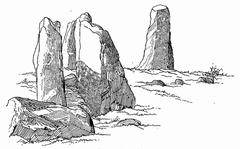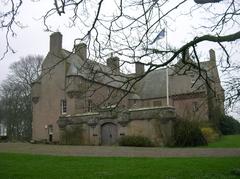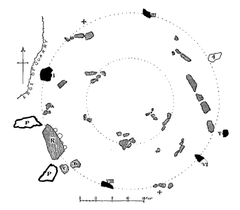Sunhoney Stone Circle Visiting Hours, Tickets, and Historical Sites in Ballater, United Kingdom
Date: 15/06/2025
Introduction: Sunhoney’s Cultural Significance
Sunhoney Stone Circle, nestled in the picturesque Aberdeenshire landscape near Ballater, is a striking example of Scotland’s Neolithic heritage. Dating from approximately 2500–2000 BCE, this site is one of the best-preserved recumbent stone circles, a monument type unique to northeast Scotland. Its large horizontal recumbent stone, flanked by tall uprights and surrounded by a near-perfect ring of standing stones, reveals both ritual and astronomical significance. Sunhoney provides invaluable insight into the ceremonial and funerary practices of early farming communities, with features such as original stones, intricate cupmarks, and sophisticated solar and lunar alignments. The monument is freely accessible year-round, though visitors should be prepared for its rural, uneven terrain. In addition to the stone circle, the Ballater area is rich in cultural and natural heritage, including castles, Victorian architecture, and additional prehistoric sites, making it a rewarding destination for history lovers and travelers alike (Isle of Albion; Historic Environment Scotland; SOBT; Visit Ballater).
Table of Contents
- Introduction
- Archaeological Features and Preservation
- Historical Context and Construction
- Visiting Information
- Nearby Attractions
- Landscape and Setting
- Research, Excavation, and Conservation
- Responsible Tourism and Practical Advice
- Frequently Asked Questions (FAQ)
- Conclusion
- References
Archaeological Features and Preservation
Structure and Layout
Sunhoney exemplifies the recumbent stone circle tradition, characterized by a large recumbent stone set on the southern arc of a circle, flanked by two tall upright stones. The circle’s diameter is approximately 25 meters and consists of 11 original red granite uprights, all remarkably preserved. The entire monument is enclosed within a 19th-century plantation wall, which has contributed to its outstanding state of preservation (Isle of Albion; Historic Environment Scotland).
Recumbent Stone and Cupmarks
The recumbent stone, notable for its size and southern alignment, is positioned to facilitate observations of key solar and lunar events. This demonstrates the advanced astronomical awareness of its builders. The stone, along with one flanker, is marked with numerous cupmarks—small carved depressions believed to have ritual or symbolic significance (Historic Environment Scotland).
Internal Features: The Ring Cairn
Within the stone circle lies a slightly raised platform, interpreted as a ring cairn. Excavations in the 19th century uncovered cremated human remains here, confirming a funerary role in addition to possible ceremonial functions (Isle of Albion).
Historical Context and Construction
Dating and Purpose
Sunhoney Stone Circle dates to the late Neolithic or early Bronze Age (circa 2500–2000 BCE), aligning with a tradition distinctive to northeast Scotland. These circles were constructed by local farming communities and likely served multi-faceted roles: ritual centers, burial grounds, and places for observing celestial phenomena. The presence of cremation burials and the circle’s alignment with lunar and solar events highlight its importance in both death rituals and cosmological observances (Historic Environment Scotland; Isle of Albion).
Visiting Information
Location and Directions
Sunhoney Stone Circle is situated approximately 2 miles (3.2 km) west of Echt and about 13 miles (21 km) west of Aberdeen. The Ordnance Survey grid reference is NJ 716057; GPS: 57.141325, -2.471105. Access is via the B9119, turning at Sunhoney Farm, with parking available along the unsurfaced track—be careful not to obstruct farm access. From the parking area, a short walk leads to the circle, with clear signage and a grassy path through a wooded area (Undiscovered Scotland; SOBT; Aberdeenshire Council; Les Hamilton).
Hours, Admission, and Accessibility
- Hours: Open year-round, 24 hours a day; best visited during daylight.
- Admission: Free of charge; no tickets required.
- Accessibility: The site is reached by a grassy, sometimes muddy path over uneven terrain. There are no formal paths or wheelchair access. No on-site facilities are provided; plan accordingly (SOBT).
Travel Tips
- Footwear: Sturdy, waterproof shoes are recommended.
- Weather: Scottish weather is changeable; bring suitable clothing.
- Respect: Remain on marked paths, do not disturb livestock, and take all litter with you.
- Pets: Dogs are welcome but must be kept on leads.
Nearby Attractions
Sunhoney’s location in Aberdeenshire places it near other significant sites:
- East Aquhorthies Stone Circle: Another well-preserved recumbent circle.
- Loanhead of Daviot Stone Circle: Known for its impressive stones and cairn.
- Tomnaverie Stone Circle: Set on a hilltop with panoramic views.
- Balmoral Castle: The royal family’s summer residence, open seasonally.
- Ballater Village: Offers Victorian architecture, shops, and local dining (Visit Ballater; Stays in Scotland).
Landscape and Setting
Surrounded by mature trees—oak, ash, and beech—Sunhoney offers a tranquil, secluded environment. Its gentle hilltop location affords expansive views and enhances the monument’s atmospheric presence. Local folklore refers to Sunhoney as a “fairy ring,” attesting to its mystical allure in Scottish culture (Isle of Albion).
Research, Excavation, and Conservation
The site has been the subject of archaeological attention since at least 1865, when cremated remains were discovered within the ring cairn. As a scheduled monument protected by law, Sunhoney benefits from ongoing conservation efforts to ensure its preservation for future generations (Historic Environment Scotland).
Responsible Tourism and Practical Advice
Sustainable Travel
- Public Transport: Reach Ballater by bus from Aberdeen; local taxis or cycling are recommended for the final stretch.
- Cycling/Walking: The Deeside Way provides a scenic cycling and walking route.
- Electric Vehicles/Car Sharing: EV charging points and car-sharing schemes are available in Ballater (VisitScotland).
On-Site Conduct
- Leave No Trace: Remove all litter; avoid fires and picking wildflowers.
- Wildlife/Livestock: Keep dogs on a lead; close gates and do not disturb animals.
- Respect: The stone circle is on private farmland with permitted access; be courteous to landowners and farmers (Scottish Outdoor Access Code).
Facilities
There are no facilities on site; plan for food, water, and restrooms in nearby Ballater or Inverurie.
Frequently Asked Questions (FAQ)
Q: What are Sunhoney’s visiting hours?
A: The site is open year-round during daylight, with no formal opening or closing times.
Q: Do I need a ticket to visit Sunhoney?
A: No, the site is free and does not require tickets.
Q: Are guided tours available?
A: Occasionally, local operators offer guided tours; check with Ballater Tourist Information Centre.
Q: Is the site accessible for wheelchairs?
A: No; the path is uneven and crosses fields.
Q: Can I bring my dog?
A: Yes, but keep dogs on a lead and under control near livestock.
Conclusion
Sunhoney Stone Circle is one of Aberdeenshire’s most evocative and well-preserved Neolithic monuments. Its unique structure, tranquil woodland setting, and remarkable state of preservation provide a meaningful connection to Scotland’s ancient past. With thoughtful preparation and respectful behavior, visitors can enjoy a memorable and sustainable experience at Sunhoney—and, by extension, the broader historical and natural wonders surrounding Ballater and Royal Deeside. For current updates, detailed travel tips, and further exploration of Aberdeenshire’s heritage, consult resources such as Historic Environment Scotland, VisitScotland, and local tourism centers.
References
- Isle of Albion
- Historic Environment Scotland
- SOBT
- Visit Ballater
- VisitScotland Responsible Tourism
- Undiscovered Scotland
- Aberdeenshire Council
- Les Hamilton
- Stays in Scotland
- Scottish Outdoor Access Code
- Responsible Travel: Scotland
